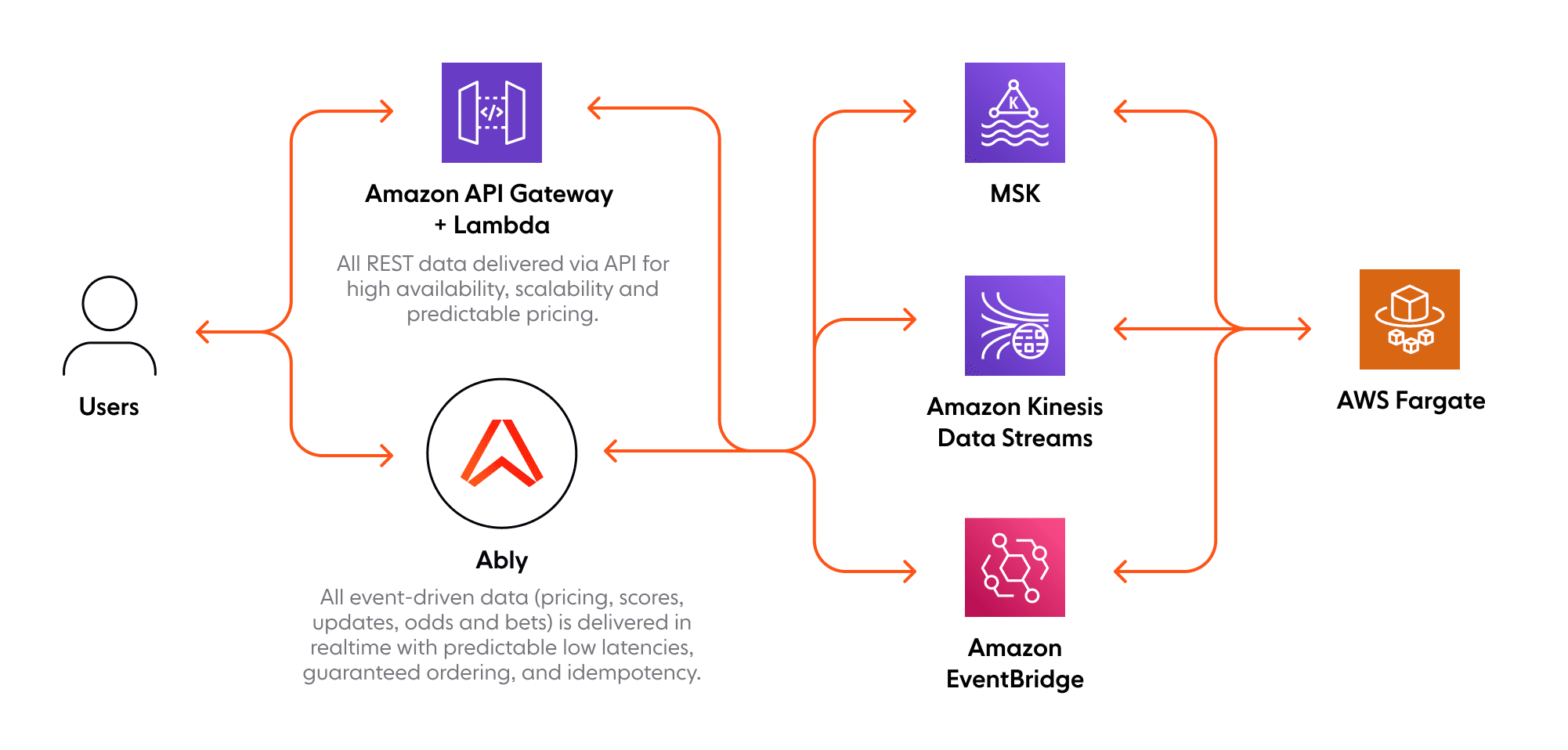Download this article as a PDF
Sports betting is on the rise in the US as a growing number of states have recently legalized online and mobile sports betting. As of early 2022, sports betting is legal in 30 states and Washington, DC, with more expected to follow suit. The industry has seen massive growth since the Supreme Court ruled on it in 2018, with mobile apps increasingly being the chosen way for customers to place a wager. By October 2021, wagers surpassed $7 billion per month, which is more than a 20-fold increase since the ruling in 2018.
Regulated sportsbooks companies, such as FanDuel, DraftKings, BetRivers, and Barstool Sportsbook, are locked in competition to own a slice of potential profits. In 2021 sportsbooks invested more than $1 billion in marketing and advertising to grab market share from lucrative in-play and cash-out betting services.
Super Bowl betting
The most significant event in the calendar for betting providers is the Super Bowl. According to the American Gaming Association, in 2021, more than 23 million Americans wagered a record $4.3 billion on Super Bowl 55.
Superbowl 56 promises to be another high-volume and highly sought-after betting event. In 2022, the value of wagers is expected to crush last year’s record because of the additional states that have since legalized online betting.
Despite the record value of wagers placed during the Super Bowl 2021, customers placing bets through mobile apps and online expressed anger at service outages and poor app performance throughout the game.
- DraftKings, BetRivers, and Barstool Sportsbook went down in the hour before the game. DraftKings attributed this outage to a massive spike in traffic to the backend provider, Kambi, which is common to those three books.
- FanDuel customers could not log in or place a bet in Pennsylvania, Michigan, and Illinois.
- BetMGM suffered an outage in Nevada for several hours that impacted their kiosks and over-the-counter processing alongside the mobile app.
Put simply, the volume of customers caused a surge of bets so demanding that it surpassed the normal operating capacity of the backend technology.
It’s not surprising that, as the industry readies itself for Super Bowl 2022 on February 13th, the sportsbooks and their customers are wondering: are we about to see a replay of the outages of 2021?
Will New York be a surge hot spot?
New York state legalized sports betting in early January 2022, just a few weeks ahead of Superbowl 56. The New York State Gaming Commission reported that official sportsbooks in that state saw high levels of betting, with more than $600 million of wagers placed in the two weeks following launch. Volumes were higher than analysts predicted; during the first 12 hours, New York saw about 2.5 times more sportsbook transactions than other popular sports betting markets.
There are just four mobile betting operators allowed to offer mobile bet wagering in the state, and the launch weekend was not without service interruption issues. Residents of New York who want to place a wager on Super Bowl 56 may need to prepare themselves for outages.

Failure by success
As mobile betting took off in the US and the market grew competitive, the rush for a share of the profits drove sportsbooks to invest in front-end technology while trusting legacy third-party providers for their back-end services.
The industry risks failing due to its success. During major events, bettor demand has grown to the point that the back-end capacity for wagers now regularly hits a failure threshold. The existing systems cannot scale aggressively, which leads to outages. Even at lower loads, the quality of service fails in terms of performance, data delivery, and integrity needed to meet the expectations of realtime performance.
Customer experience is a competitive battleground because mobile sportsbook users are digital natives with low brand loyalty and high expectations of an app. Following a poor experience, users will flock to a competitor app that offers even slightly better performance. To defend against churn and increase market share, sportsbook providers need to migrate to use reliable back-end platforms.
Tackling the realtime challenge
A successful realtime system behind a betting platform must deal with an unpredictable and rapidly changing number of end-users and tolerate massive spikes in demand during major sporting events without outages.
User verification and security systems need to support large volumes of concurrent login attempts. Customers want to log in swiftly, or they will be frustrated.
Information such as odds needs to be delivered as fast as possible, so it is valid and actionable for in-game betting. When users can’t place a bet because the odds have changed before they verify their wager, they lose trust in the platform. Updates to odds must not be lost on their way to the customer, nor bets lost once submitted.
To meet these challenging requirements, a dependable realtime system to underpin a betting application needs the following characteristics:
- High availability and fault tolerance. It should continue to operate without interruption, even in adverse conditions like infrastructure failures.
- Low latency. High performance to ensure a good user experience and minimize the risk of incurring high liabilities. The faster you receive and process bets, the quicker you’re able to generate new, updated odds and send them to users.
- Dynamic elasticity. Scales as needed to deal with surges of millions of users.
- Surge resistance. When demand is highest, more messages will be received than can be processed immediately, but a realtime system with critical surge resistance guarantees to store these messages.
- Data integrity guarantees. Message ordering and exactly once delivery.
- Connection-state recovery. End-users should never lose data during disconnections. The realtime system must ensure continuity of service with high levels of message survivability.
Build a robust mobile sportsbook with a serverless architecture
Sportsbooks need to invest in their existing technology stacks and bring on board systems that can cope with the aggressive scale and agility required. A serverless cloud-based architecture provides a dependable infrastructure with elasticity to match capacity. Sky Betting & Gaming describe their move to a serverless architecture as follows:
“One huge benefit of using AWS over building and hosting our own servers is that we get redundancy out of the box as all of the AWS services we are using are hosted across multiple availability zones in each region...We now also no longer have to provision servers as we can spin up new environments and deploy to them incredibly quickly with Terraform and a script”.
In combination with AWS, to ensure a fault-tolerant, autoscaling solution, a sportsbook should adopt a realtime platform that offers a global network to send time-critical data such as odds to end-users at the network edge in realtime, and receive bets back into the system, with utmost reliability.
About Ably
Ably is a realtime platform that simplifies synchronization between apps and serverless architectures and integrates natively with the AWS ecosystem. There is no need for infrastructure management & provisioning: your realtime setup can be easily managed and integrated via a dashboard or API. By combining Ably and AWS, you don’t have to consider availability and redundancy or cross-region provisioning.

- Ably is designed to absorb unexpected spikes in traffic. Autoscaling systems actively manage capacity across 15 datacenters and 205 edge acceleration PoPs.
- We predict when capacity is needed and provision automatically to maintain sufficient spare capacity at all times.
- Datacenters that become overloaded will shed traffic to other datacenters.
- Any single customer experiencing a spike of 100x their usual traffic load, for example, may only result in a 10% increase globally for our cluster.
Out-of-the-box, companies benefit from Ably’s massively scalable global network, unique data ordering, and delivery guarantees. We offer legitimate 99.999% uptime SLAs thanks to our fault-tolerant infrastructure and four pillars of dependability.
Ably is proven in this space. The Australian Open is one of the four major tennis tournaments in the global sports calendar and airs live in 220 territories to more than 900 million homes. The Australian Open is owned and managed by Tennis Australia, which has used Ably since 2018 to meet the challenge of providing real-time scores, updates and commentary to the event’s global fan base (over 1 million users to receive updates within 500ms, for the 95th percentile of all users). Losing users through poor data delivery is not an option for them. Their advertising revenue depends on continuous data delivery for its sponsors and partners.
Ably also works with companies such as Genius Sports, Stadion, Fanmio and NeoGames.
Related articles
- Architectural design patterns for betting app developers
- Online Gaming & Sports Betting: 6 Ways to Exceed Users' Realtime Expectations
- The real(time) future of sports data
If you are in this field and running into problems trying to massively, dependably, securely scale your distributed realtime communication system, get in touch and see what Ably can do for you.





